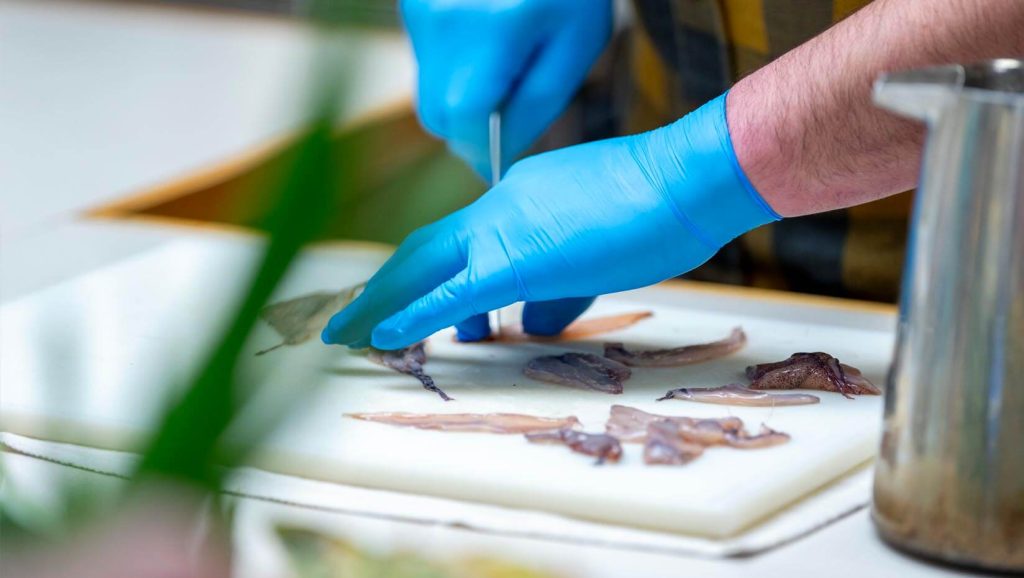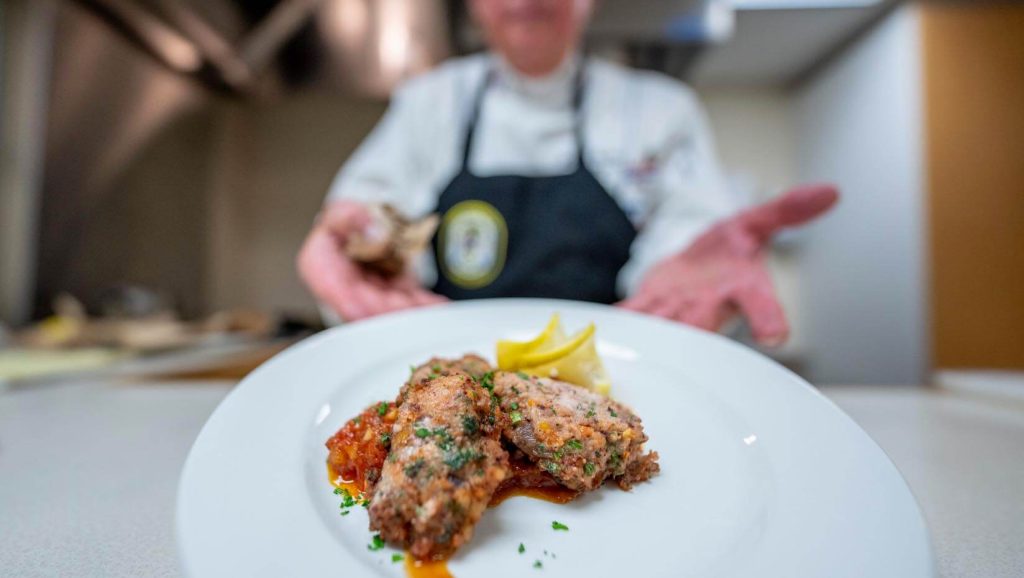
UMaine-led research team making new frozen foods from squid fins
Squid has become a staple menu item and ingredient in many seafood restaurants, whether it’s fried, baked, grilled or served raw. In North American markets, however, only about half of each squid is used for culinary applications.
To reduce food waste and open new markets, a University of Maine-led team of researchers and students will devise new frozen food products that can be created from squid fins, one of their byproducts. The project is supported by $229,376 from the NOAA Fisheries Saltonstall-Kennedy Competitive Grants Program.
The group, led by UMaine professor of food science Denise Skonberg, will devise and develop several frozen food prototypes at the Dr. Matthew Highlands Food Pilot Plant in Hitchner Hall using processed fins from North Atlantic longfin and shortfin squid. Possible goods, which will be designed for preparation at home or in restaurants, may include frozen appetizers, entrees, nuggets and sliders. Researchers will recruit people to sample their prototype food products at the UMaine Sensory Testing Center and evaluate them based on appearance, texture, aroma and flavor.
As part of their initial work, UMaine researchers recently invited local chefs to prepare various dishes with squid fins, some of which they may be able to freeze. Those dishes included meatballs, egg rolls and dumplings, all made from squid fins. Watch the Youtube video about the workshop and the overall research to learn more.

Skonberg is working on the project with Rob Dumas, food science innovation coordinator at UMaine and facility manager for its School of Food and Agriculture, and Brianna Hughes, vice president of operations, supply chain and quality for The Town Dock, a wholesale calamari product company in Narragansett, Rhode Island. The team plans to recruit a graduate student and several undergraduate students who will complete laboratory and sensory analyses and assist with processing and prototype ideation and development.
Commercial squid fishing and processing brings in millions of dollars annually to New England and mid-Atlantic states, including Rhode Island, Massachusetts, New Jersey and New York. In 2022, 40.4 million pounds of longfin squid were harvested, valued at $60.2 million, and 12 million pounds of shortfin squid were landed, valued at $6.4 million, according to NOAA Fisheries.
“I am really pleased that we have been able to build a multidisciplinary team, including food scientists, professional chefs and seafood processors for this research and development effort,” Skonberg says. “Although our overall goal is to help reduce seafood waste in the food industry, training our students in industry-relevant research is another big plus.”

Chefs from the New England region will be recruited to help develop ideas for new products, prepare and taste them in an innovation challenge. Once the final prototypes are developed, the chefs also will be asked to test them by preparing them for various applications, then provide feedback on their quality, ease of handling and preparation, likeliness of use in restaurants and price value.
In addition to devising new food products, researchers will investigate how to effectively process and freeze wings from the two squid species, and determine how short-term frozen storage affects the quality of the frozen products made from them. The team plans to share their results with North Atlantic squid processors, product developers, foodservice professionals, seafood technologists and consumers in a variety of ways to benefit the industry at large.
“It’s exciting to see a project with such potential,” says Hughes. “Reducing food waste while also bolstering profitability is a win for everyone.”
Contact; Marcus Wolf, 207.581.3721; marcus.wolf@maine.edu
